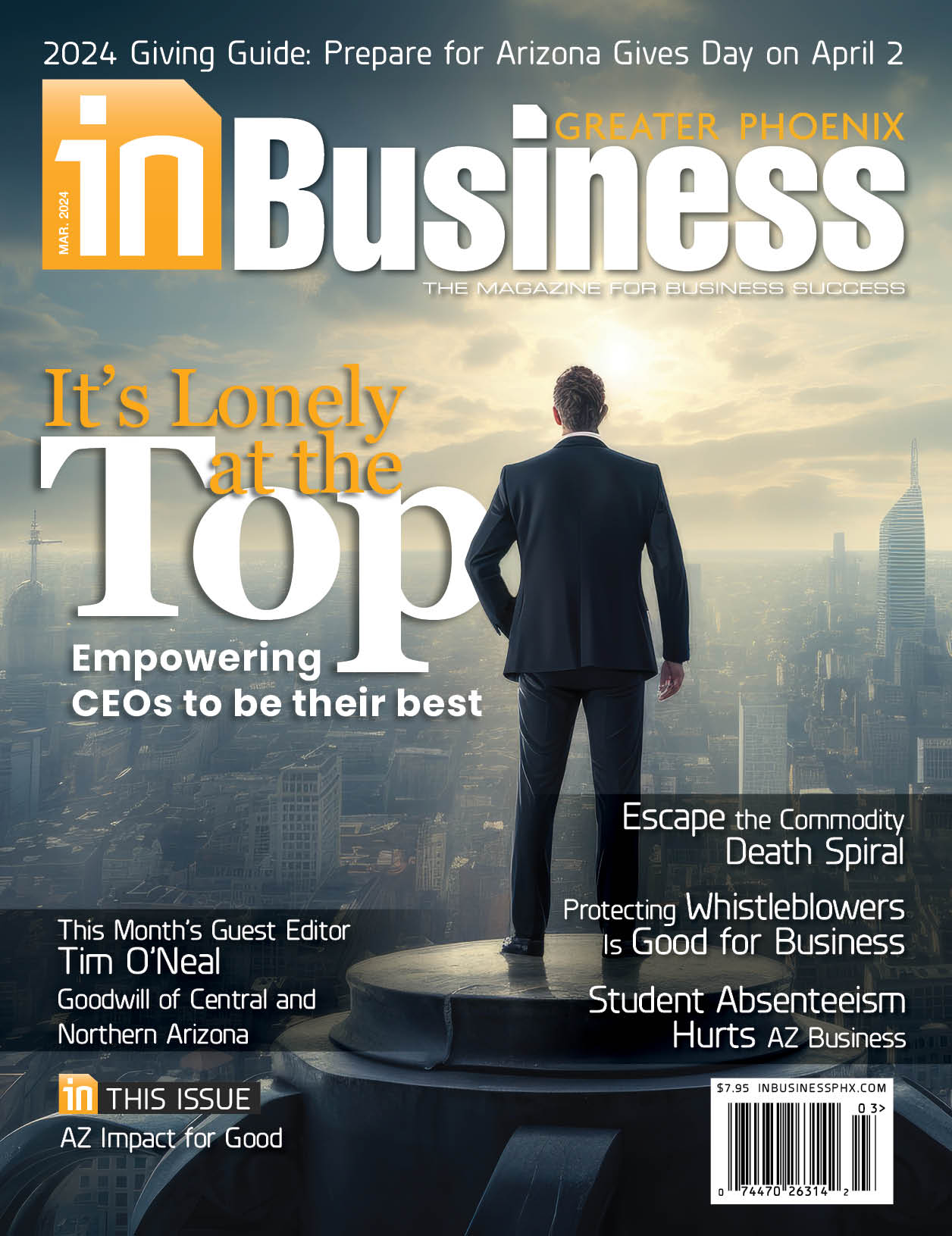
Even when communities are far apart, they still can come together for common goals.
That mindset has kept the SciTech Institute not only operating but evolving while the world still struggles to reopen throughout spikes in COVID cases. New programs and growth continue to occur at the organization whose parent is the Arizona Technology Council.
“To survive in this period of time, you have to adapt,” says Jeremy Babendure, the SciTech Institute’s executive director. “Our team has really done a great job at making things work in the digital space and innovate.”
Babendure shared some of those accomplishments:
STEM Ecosystem Development
Two Ecosystem Working Groups have been established to increase statewide science, technology, engineering and math (STEM) programs based on the interests of the collaborators and the community conversations. “How do we really start to build that critical mass?” Babendure says. “If we get people together in a local community, they’re going to be a lot more likely [to create] the channel opportunities that come because they’re already working together.”
The Arizona Working Group on Diversity, Equity and Inclusion in STEM was launched to provide and facilitate a platform where “STEMists” from myriad backgrounds, professions and stakeholder groups can come together to discuss, provide resources and take action for equity in STEM education and institutions.
The Arizona Working Group on STEM in Libraries was formed to provide a platform where librarians and library partners can come together to discuss, provide resources and take action to improve access to STEM education, learning tools and out-of-class opportunities.
“When you have these local regional groups, you’re going to be way more effective at connecting the dots and cross-pollinating,” Babendure says.
That can lead to new opportunities. For example, when educators are developing curriculum for advanced manufacturing, there can be a focus on diversity, equity and inclusion while determining how to leverage assets like libraries and traditional school settings.
Arizona is “potentially losing opportunities because we don’t have the proof of the workforce [ready for] the type of opportunities in the pipeline,” he says. “We’re not going to be able to fill these jobs.”
STEM & Innovation Summit
The Institute teamed with the Arizona Science Center to host — in person and virtually — the 2021 STEM & Innovation Summit at the Center in late September. The day was filled with workshops, panels, presentations and networking sessions for about 600 participants who were evenly split between online and at the center.
Through it all, the tone touched on how to work as a statewide connected ecosystem. “It shows the interest continues despite the circumstances,” Babendure says. “People are just ready to start connecting together again.”
Chief Science Officers
More groups coming together through digital means helped expand training for members of the Chief Science Officers (CSO), the program that promotes student voice and engagement in STEM and education conversations across multiple states and countries. Mexico has had a heavier amount of participation, thanks to technology enabling long-distance training.
For example, up to 400 students in Guanajuato alone have joined the CSO ranks, Babendure says. Add to that growth in places such as Jalisco and Chiapas. “The ability to train people online and have our staff attend has made expansion opportunities happen,” he says.
Looking ahead, the Institute is getting ready for the 2022 version of the STEM celebration that started it all: the annual Arizona SciTech Festival. This year the festival will launch in late January and run through early April. While there will be at least a couple of dozen signature events, there also will be several hundred others at various locations.
New this year is a relationship with the Barrett-Jackson auto auction. Babendure says the Institute will launch its roster of activities with a ribbon cutting that starts the event in Scottsdale. “It’s a great way to reach new audiences that wouldn’t normally get exposed to that sort of thing,” he says.
Festival attendees may be growing accustomed to something new. Last year was the debut of events staged for online audiences from as far as Kenya while one event even originated from Easter Island. For 2022, “I think a lot of [the organizers] are really wanting to get back to some sort of normalcy,” Babendure says.
















Speak Your Mind
You must be logged in to post a comment.